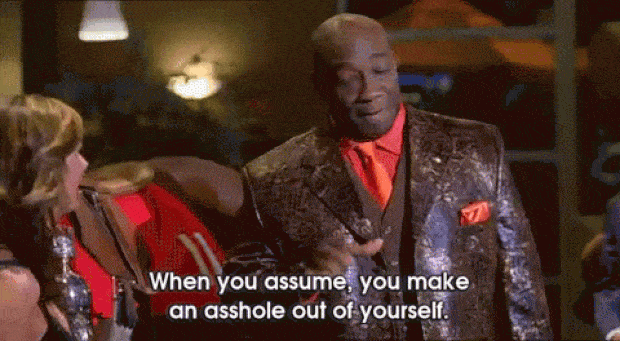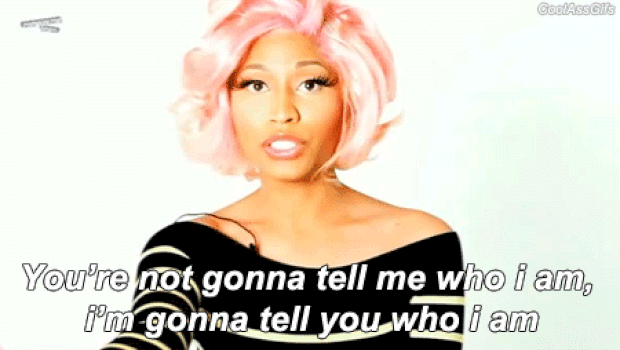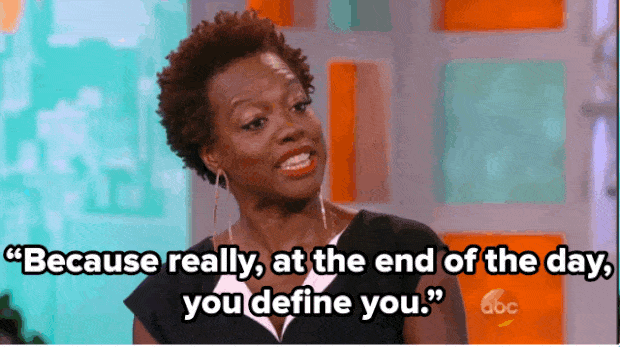How Heteronormativity Hurts EVERYONE — Yes, Including You
You know what happens when we assume…
 WeHeartIt
WeHeartIt It’s easy to hear a word like “heteronormativity” and roll your eyes.
It just sounds too complicated, too academic. To paraphrase The Simpsons, words like heteronormativity sound like “buzzwords that dumb people use to sound important.”
And I get it. It’s OK to have that response to the word. However, even if the word itself is awkward, the meaning behind the word is vitally important to everyone in our society.
The textbook definition of heteronormativity is “of, relating to, or based on the attitude that heterosexuality is the only normal and natural expression of sexuality.”

Heteronormativity is all about the power of the gender binary. There are men and there are women. Men like women. Women like men. End of story.
Now it’s easy to understand why so many people in our modern society would take issue with that. Our society is more openly gender-fluid and sexually complex than it’s ever been before.
And yet, thanks to attitudes like heteronormativity, LGBT and non-gender-binary people are constantly being forced to explain themselves or are finding themselves portrayed as the “other” in our culture.
Heteronormativity is an insidious thing, because it preys on our unconscious assumptions.

For example, if you meet a woman and you ask her if she has a boyfriend, that’s heteronormative. That was you assuming that she was heterosexual.
Or if you’re a gay man in a committed relationship and someone asks you “Well, which one of you is the husband?”, that’s heteronormative. That person can’t even wrap their mind around the idea of a relationship that doesn’t mirror some 1950s Ma-and-Pa sitcom dynamic, so they try to force a label onto it.
And those heteronormative moments are easy to avoid. You can ask the woman “Are you seeing anyone?” rather than “Do you have a boyfriend?”. You can ask the gay man about some other aspect of his relationship other than “Who’s the daddy?”
It takes maybe a few milliseconds of forethought to resist the urge of our centuries-old stereotypes, but it makes SUCH a difference.

BUT… I know what some of you are thinking…
“I AM heterosexual, so why should I care about heteronormativity? Why can’t I be proud of being heterosexual?”
That’s understandable to a certain degree. Putting empathy for others aside for a moment, a response like that says “Hey, I don’t have any skin in this game. Why should I bother?” Maybe you don’t know any LGBT people. Maybe you live in an almost exclusively heterosexual community.
So why should you care?
You should care because heteronormativity is about MORE than just sexual orientation.
Heteronormativity is all about the idea that men do certain things and women do other things, and those roles should NEVER change. It’s all about the ASSUMPTION that we all fall into particular gender roles, even straight people.
Let me give you some examples…
If you’re a man and you’re a stay-at-home dad, you’re defying the gender binary. You’re doing a “task” that a woman normally does. That means you’re not heteronormative.
If you’re a woman and you ask a man out on a date, you’re defying the “normal” gender dynamic in male-female relationships and you’re not being heteronormative.
If you have a son and he prefers playing with dress-up clothes and art supplies over trucks and baseballs, he’s not following the stereotypical gender definition of a “boy,” so he’s not heteronormative.
If you have a daughter and she wants to take up kickboxing rather than cheerleading, she’s rejecting traditional feminine roles and she’s not heteronormative.
Whether you like it or not — and whether you’re straight, gay, questioning, or something else — YOU ARE affected by heteronormativity.

It’s not good for ANYONE. It wants to tell you what to do and, if you reject it, heteronormativity tells you that you are WRONG.
You are not a real man or a real woman. You are something OTHER, something that needs to be explained and excused, something that should not be accepted as a “normal” part of society.
Yes, heteronormativity sounds academic, but it’s all about basic human respect.
It’s about men and women not having to fall into preordained gender roles, just because that kind of classification is easier for everyone to remember.
Heteronormativity helps NO ONE, not even heterosexuals. So, even if you feel like a liberal arts hipster for using the word, it’s incredibly important that we all know what heteronormativity is and that we all know that we need to oppose it.
